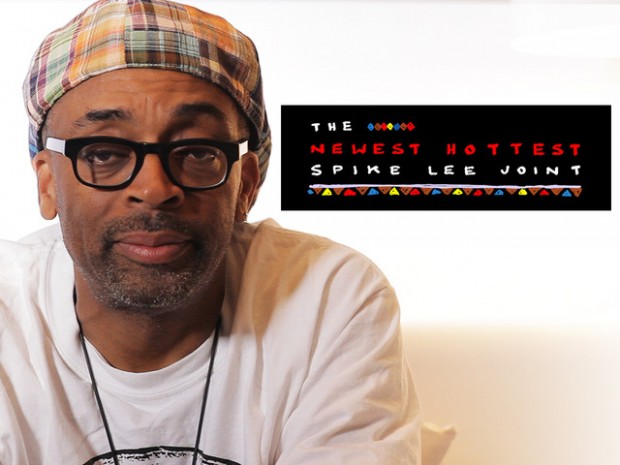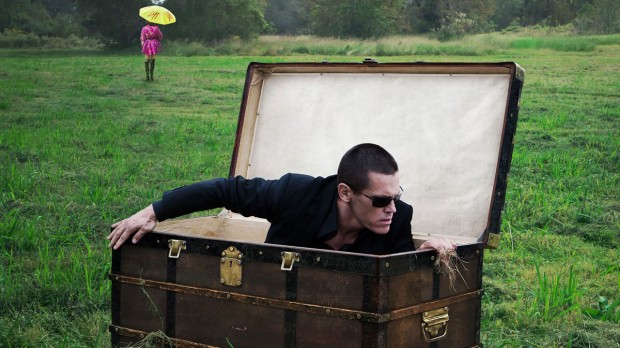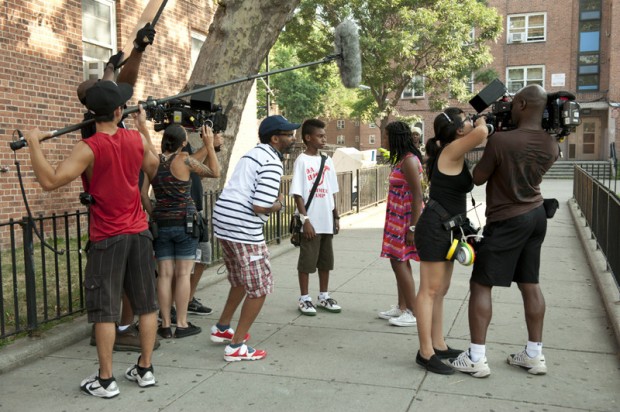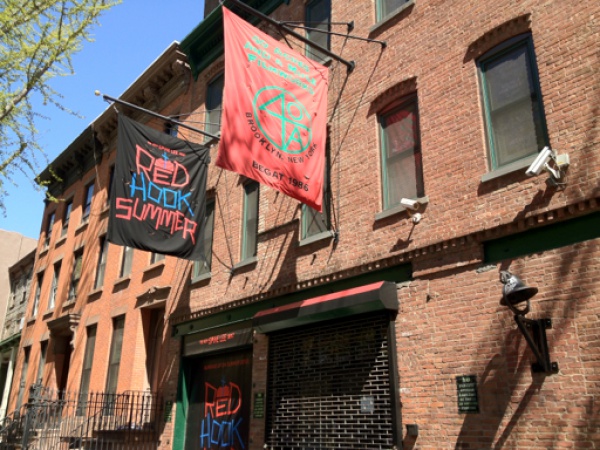As both a filmmaker and figurehead of independent cinema of the ’80s and ’90s, Spike Lee has never show himself afraid to travel down new routes, seeing where the latest attempt takes him. It was, thus, of little surprise when, last month, he launched a Kickstarter for his next project, which was described only as the story of “human beings who are addicted to blood,” with “a lot of sex.” Why is he going directly to consumers? In his own words, it’s a “motherfucking tough business” that simply isn’t making room for this latest endeavor.
When contacting Lee through his new page, the helmer was kind enough to grant an interview concerning the title. In the fifteen-minute conversation, he and I discussed the Kickstarter method, people’s varied reactions to it, how it changes (and doesn’t change) pre-production approach, and more. With less than a week to go on his campaign, check out our conversation below.
The Film Stage: Honestly, I was surprised at how easy you were to reach. It seems like a very open, transparent process process you’re running.
Spike Lee: Yeah. You know, we’re trying to reach out to people.
Do you enjoy the extra connectivity that it provides?
Well, I enjoyed it before the internet — because you’re sitting in the audience, and have people react to the films. People stop me on the street. I mean, this stuff does not begin with the internet, sir.
I don’t know what your fan interaction was like before Twitter, but you clearly take big advantage of that.
I mean, I’m not trying to be a dinosaur. I thank my kids: they’re from that generation where they just pick this up real quick, and they encouraged me to… it’s like my son, who told me to get on Twitter and Instagram.
Last week, I spoke to Paul Schrader — who, of course, used the method to fund his own movie. Now, he hadn’t spoken to anyone outside the main circle, going forward —
Did he get his funding?
Yes.
How much did they raise?
Somewhere around $150,000. I was surprised when he said no one past the top forces were advised. Had you talked to any fellow filmmakers about it?
No, I really consulted the co-founders of Kickstarter, Perry [Chen] and Yancey [Strickler].
Were they encouraging?
Very much so.
With less than a week left, you crossed the $1,000,000 mark. At this point, are you feeling good about the financial status?
Yeah, I’m feeling good, but we’re not doing any end zone dances yet. Not yet. No celebration; we’re going to move forward. We always had a fundraiser in mind — hopefully it’ll be a celebration, too. This Friday, at the Brooklyn Bowl in Williamsburg.
Is it surprising that some would look at Kickstarter as a less-than-commendable option? That TV interview you did spun out of control pretty quickly.
No, that helped me. I’m just saying: they had a plan, but it backfired and blew up in their face. I got money because of that. People said, “I wasn’t going to give you shit, but I saw how that lady treated you on Bloomberg TV, and I’m going to give you a pledge.”
Was either response — the woman on Bloomberg TV, and those who decided to back you as a result — surprising?
Here’s the thing: you invite a guest on, you try to be the least bit cordial. She went into attack mode as soon as we came out of the commercial, and that’s something that was not spontaneous. That was planned. That was pre-meditated.
You had done another interview two weeks ago and, in that discussion, it was said that Hollywood’s central interest in tentpoles which gross hundreds of millions of dollars would likely block movement on a film such as this new one. Elsewhere, you also said that Do the Right Thing, to name one title, likely wouldn’t get made through a studio today.
I mean, it might have been an independent film. You know, when you talk about Fruitvale Station… that film was made independently, and the Weinstein Company, they picked it up at Sundance. So, that was an acquisition.
Do you think the days of funding your smaller projects through a studio are forever gone, or just faded for the time being?
Oh, it’s going to swing back. The pendulum will swing back; the audience will make sure, because they’re going to stop going in droves to all these tentpole movies.
Are you, yourself, ever approached for them?
No.
But is there interest, at least?
Well, it depends on the story. I’m not saying all those films are bad… it’s not that they’re all bad, but that’s all they’re making, it seems.
That’s part of why I’m looking forward to Oldboy so much: you get to make a film with a wide release and reasonable financial backing, but it can still be “your film,” minus the commercial ambition of most big releases. Did that spark your attraction to the project?
No, I just liked the story. I loved the first film.
Were you familiar with it before this new version fell into your hands?
Yeah, I saw it when I came out. I liked it very much.
What stage are you at with Oldboy?
We’re getting ready to mix. We’re in the last days of post-production.
Were you at all displeased with the release date change?
Oh, no, it’s a better release. It’s better for us.
There’s a back-and-forth, scale-wise, between that and your Kickstarter-backed effort, which is evidently in a smaller register. Compared to the ’90s, does this outside-the-bound financial approach make it harder to move between differently organized titles?
No. I mean, I’ve always thought of myself as an independent filmmaker who got money from studios, to do studio films, but my mindset was always as an indie.
I saw that an actress is already lined up. It was a bit surprising, as the process of finding people, now, when acquiring money still seems —
No, you’ve got to be multi-dimensional. I’m not raising the money myself, so…
But are you exploring options once the money comes in, or do you have to hold off a bit as things develop?
No, I kind of have some idea about who I want to cast, and my longtime casting director is working with us. So, we can do more than one thing at a time.
I think of Red Hook Summer, which was only announced once things were fully in place.
Oh, yeah, we announced it afterwards. That’s the way you want to do it.
Is there some compromise in having to tip your hand a bit while trying to secure money?
I don’t think we tipped our… what did we tip?
Well, Red Hook Summer was something no one was aware of before it had very much been put in motion, while we hear about this, now, as things are in a more transitional phase.
Well, it’s a different animal. Red Hook Summer was self-financed. I mean, how am I going to get on Kickstarter and nobody knows about it? It’s just been a great experience, being on Kickstarter.
Is it hard to rope people in when things still aren’t 100% guaranteed?
Convince who? Actors?
Actors, crew — anybody you’re seeking.
No. I mean, people know what I’ve done, so this hasn’t been part of it at all.
In your promotional video, you pointed at the 40 Acres office door to display your filmography, in large part to explain where you’ve come from. How much does your legacy play into the hiring process?
Oh, I think that it plays a lot. People want to know what you did; they want to know what you’ve done in the past. That’s how you get work. That’s how actors get work, from what they’ve done in the past.
I was lucky to visit the production office last August, and I was surprised when I went there, seeing all the posters and memorabilia that adorn the walls. Is that good, to have reminders of what you’ve made?
Well, it’s just a document; it’s like a museum. A living museum. A museum that breathes and is alive, and it’s a manifestation of the work we’ve done over the last three decades.
Will this, too, shoot in New York?
Yes, it will.
You’ve said that 2014 is the prospective release. Do you find that the gap between features — the four years between Miracle at St. Anna and Red Hook Summer — were at all revitalizing? I know you did documentaries between then, but the narrative output saw something of a slowdown —
It wasn’t a slowdown; I couldn’t get anything made. I mean, it’s not like I said, “I’m going to take two years off.” I couldn’t get anything made.
But do you find that moving along at your normal pace once more, after that delay, provides additional energy?
I mean, that wasn’t my doing. So, you know, I was writing and doing a whole bunch of stuff. I didn’t slow down at all. A large part of that is, we were banking on the sequel to Inside Man. During that period, I was working on a James Brown script; I was working on an L.A. Riots script. So, I wasn’t idle.
Do you see any of them coming back around?
Who knows.
Is Kickstarter something you’d ever consider using again?
Well, I don’t know about that, but I’m just very happy I did it this time. We’ve still got to move forward to get our one-million, two-fiddy.
Lee’s Oldboy will open on November 27, and, as of this writing, five days remain in his Kickstarter effort.






